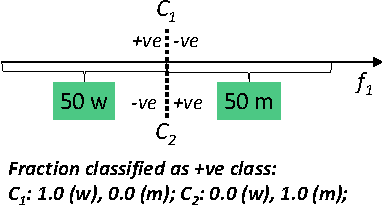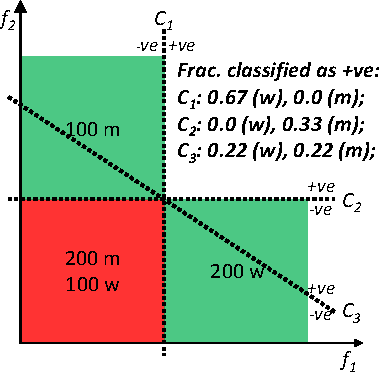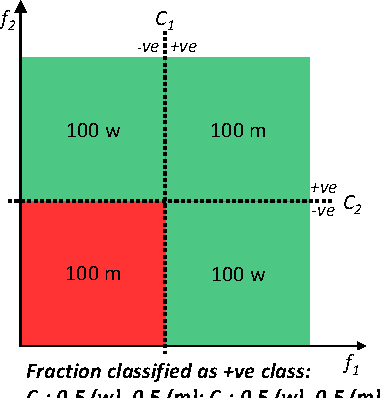On Fairness, Diversity and Randomness in Algorithmic Decision Making
Paper and Code
Jun 30, 2017



Consider a binary decision making process where a single machine learning classifier replaces a multitude of humans. We raise questions about the resulting loss of diversity in the decision making process. We study the potential benefits of using random classifier ensembles instead of a single classifier in the context of fairness-aware learning and demonstrate various attractive properties: (i) an ensemble of fair classifiers is guaranteed to be fair, for several different measures of fairness, (ii) an ensemble of unfair classifiers can still achieve fair outcomes, and (iii) an ensemble of classifiers can achieve better accuracy-fairness trade-offs than a single classifier. Finally, we introduce notions of distributional fairness to characterize further potential benefits of random classifier ensembles.
 Add to Chrome
Add to Chrome Add to Firefox
Add to Firefox Add to Edge
Add to Edge